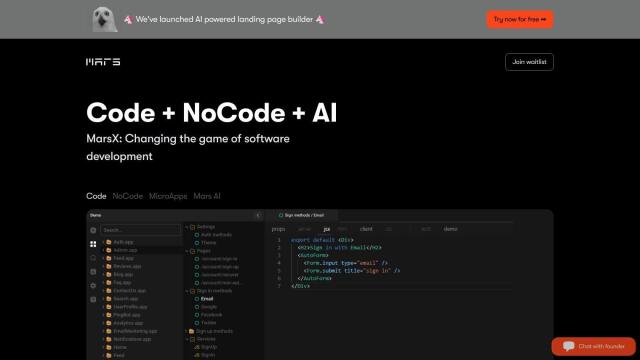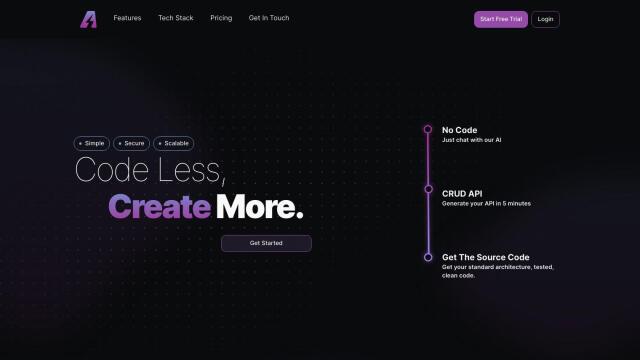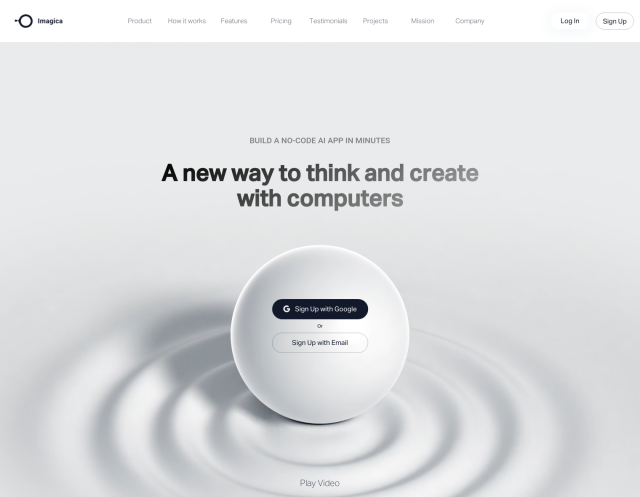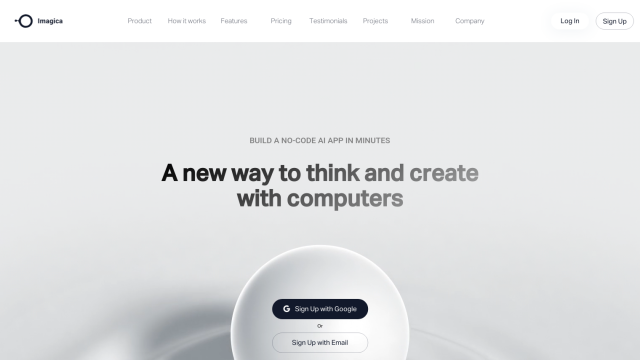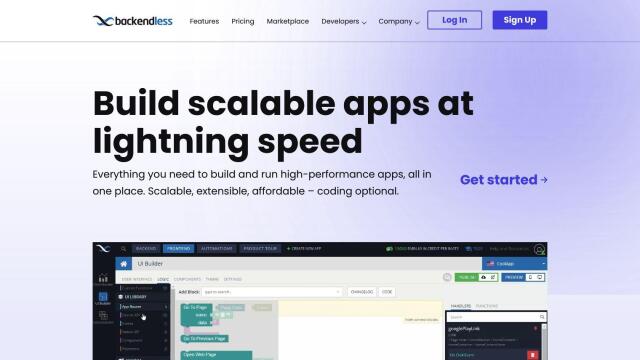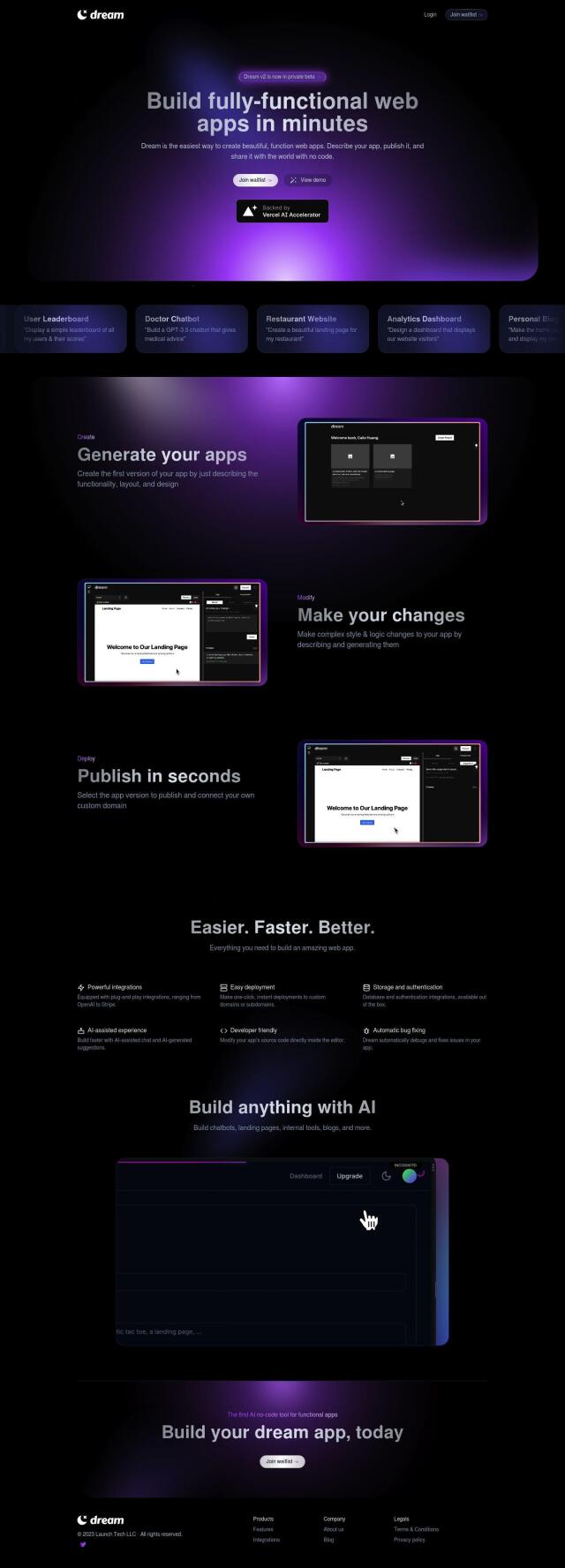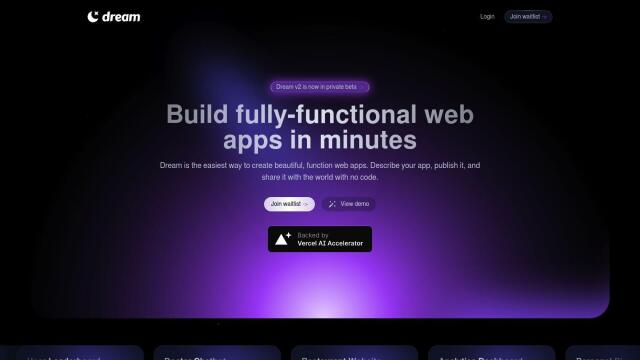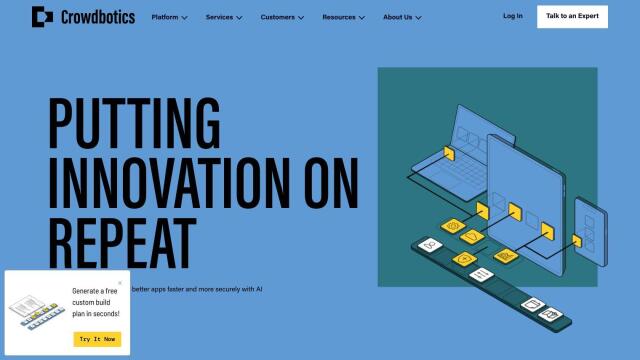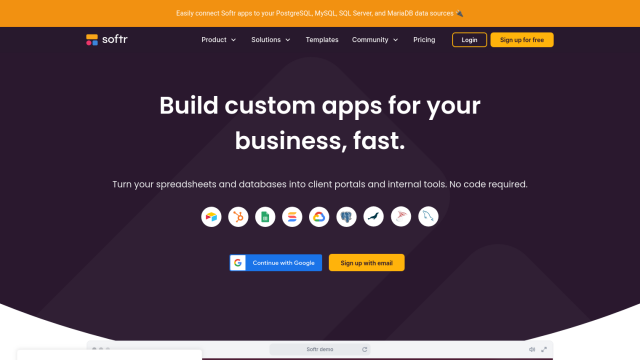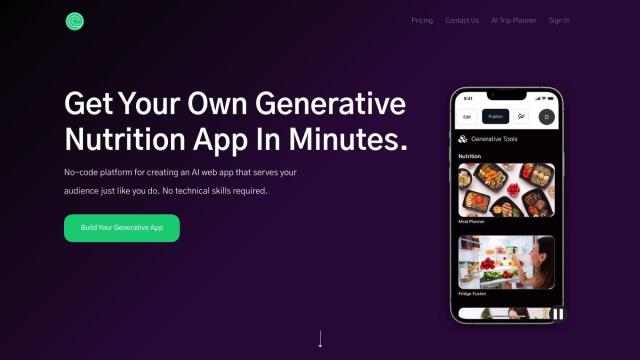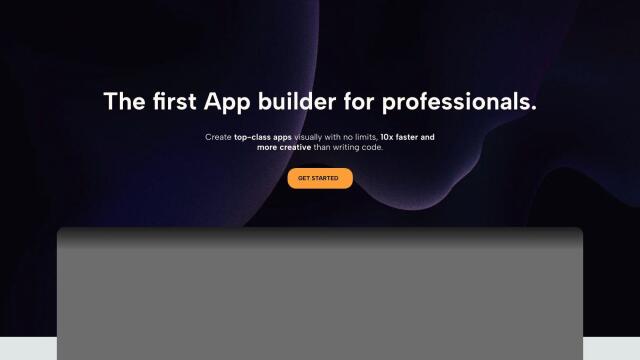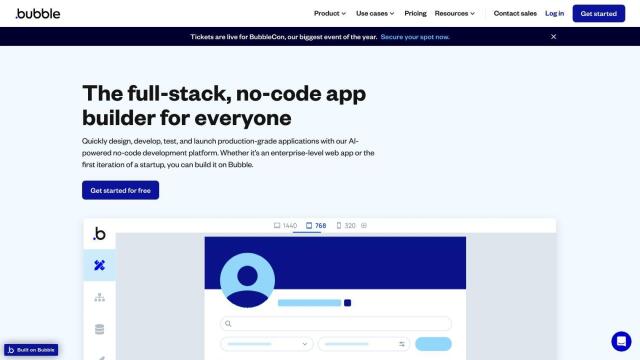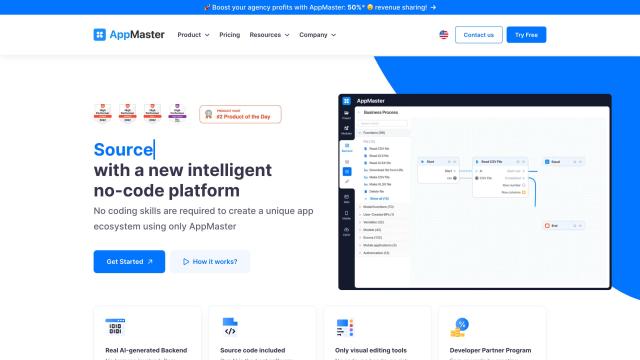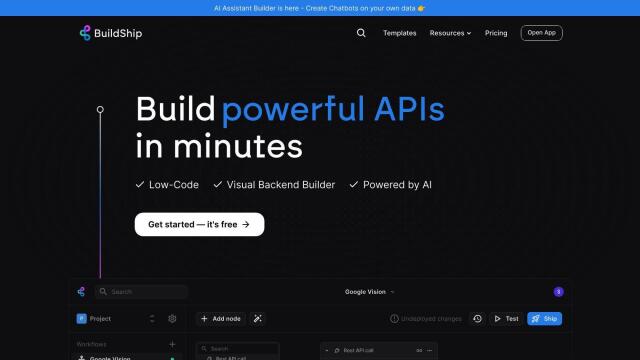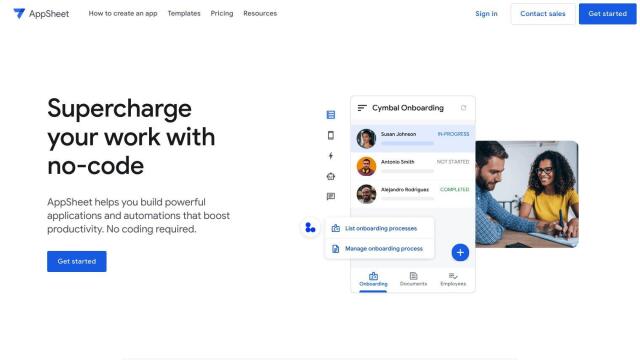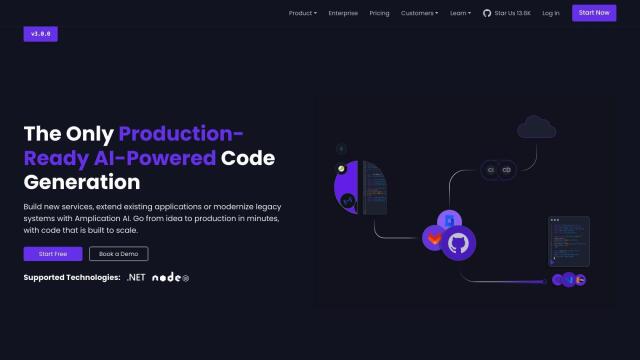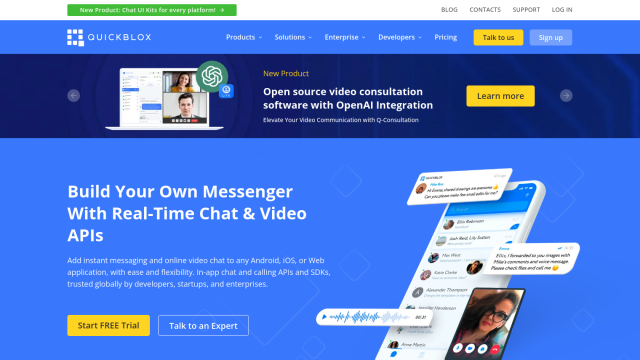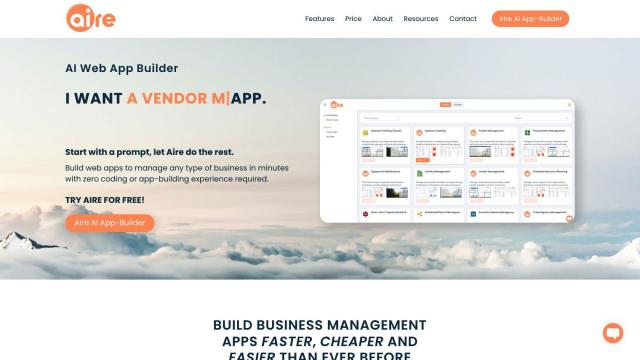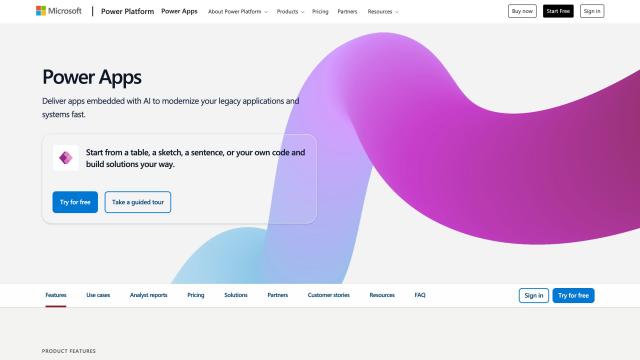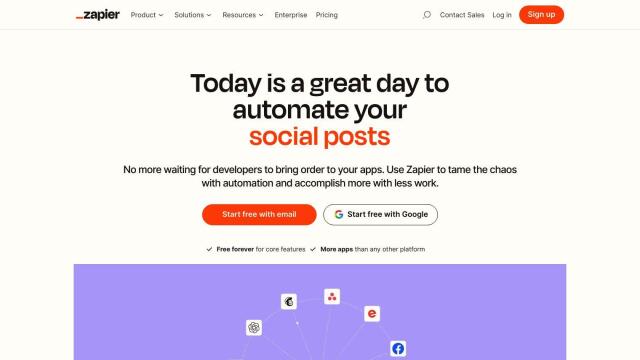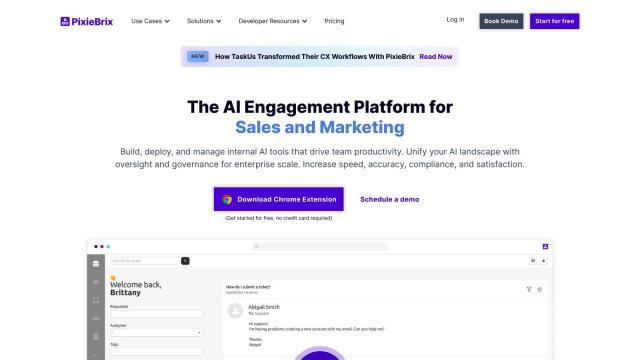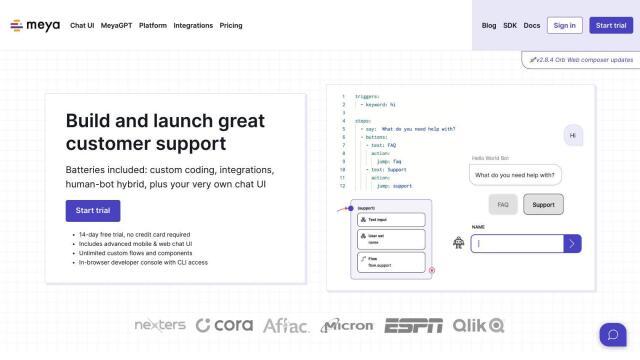
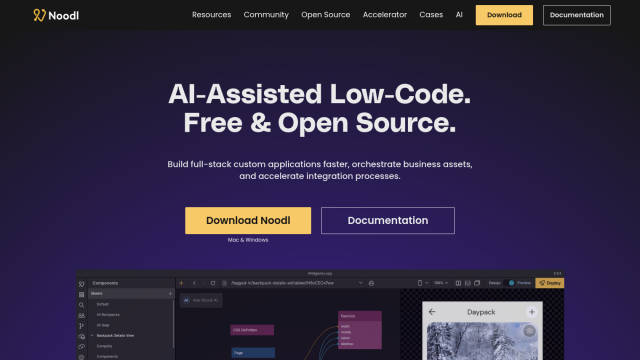
Noodl
If you're looking for another MarsX alternative, Noodl is worth a look. It's an open-source low-code platform that's boosted by AI and designed to let you build full-stack custom apps as fast as possible. With visual development, customization and reusable modules, you can integrate with third-party services and scale with built-in backend and user management. Its AI system generates building blocks, database queries and UI elements, so it's good for prototyping, MVPs and web apps where you don't need to write much code.

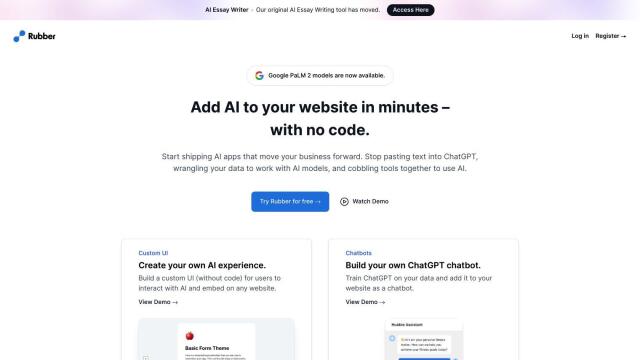
Rubber
Another good option is Rubber, which is designed to let you build AI-powered apps even if you don't know how to program. It's got a library of building blocks, a way to create your own custom UI, and integration with ChatGPT, so you can build apps that are more intuitive and powerful. Rubber also offers professionally designed templates and a range of pricing options, including a free tier, so you can pick the right option for your needs.

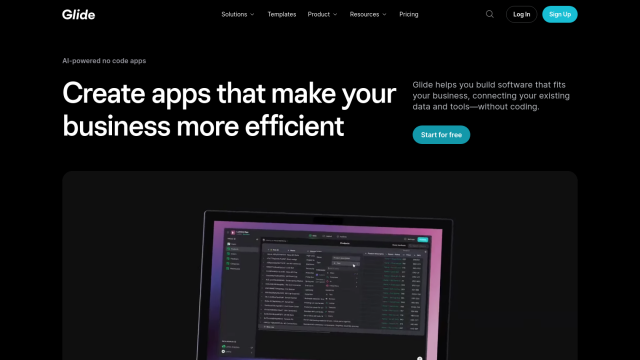
Glide
If you're looking for a platform that handles both data integration and adaptive layouts, check out Glide. Glide is a no-code app builder that links to existing business data in spreadsheets or databases and that deploys apps on all devices. More than 100,000 companies use its services, and Glide has a lot of resources to help you get started, including customizable templates and step-by-step tutorials, to help you automate business processes.

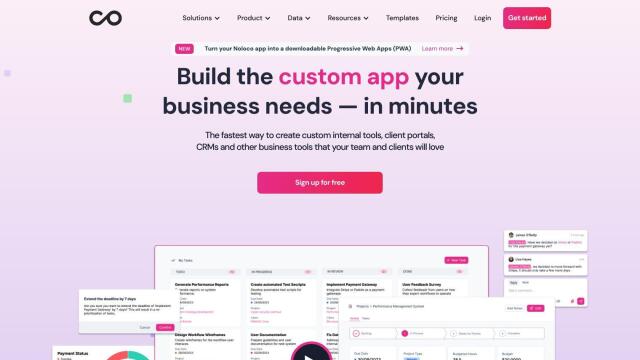
Noloco
Last, Noloco is another good MarsX alternative. It's a no-code app builder for building custom internal tools, client portals and CRMs. It integrates easily with tools like Airtable and Google Sheets and has strong permission controls and workflow automation. Noloco is good for businesses that want to increase productivity and efficiency with customizable, no-code app solutions.

